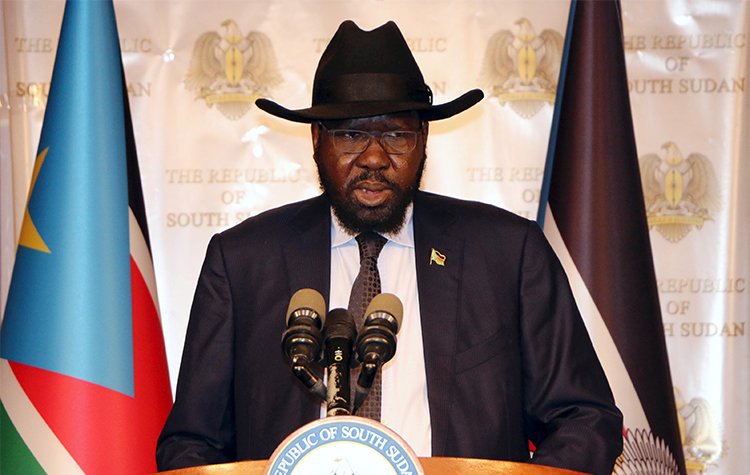Nairobi, July 18, 2017–South Sudanese authorities should immediately release Adil Faris Mayat, the director of the country’s public broadcaster, South Sudan Broadcasting Corporation, the Committee to Protect Journalist said today. National Security Service agents arrested Mayat in Juba on July 10, according to media reports.
Mayat’s wife, Amira Alnahawi, told CPJ that she believes agents arrested her husband because he failed to air a live state of the nation speech by President Salva Kiir on July 9 to mark the country’s sixth independence day. CPJ could not determine if authorities have charged Mayat with any crime.
Alfred Taban, chairman of journalists’ rights group the Association for Media Development in South Sudan, and six journalists who cover the country and who spoke with CPJ on the condition of anonymity for fear of reprisal also said that they believe Mayat’s arrest is linked to him not broadcasting the speech.
“Which news to air or not air is not a decision for South Sudanese authorities to make or even to influence,” said CPJ Africa Program coordinator Angela Quintal in New York. “We call on the government of President Salva Kiir to release Adil Faris Mayat immediately and allow the South Sudan Broadcasting Corporation and all news outlets to do their work without political interference or fear of arrest.”
When CPJ contacted South Sudan’s Information Minister, Michael Makeui, he declined to confirm Mayat’s arrest. He said, “He is in South Sudan. And if at all he is under arrest, he is a South Sudanese who is in conflict with the law.” Makuei added, “The fact that I am Minister of Information does not mean that I know everyone who is arrested.”
The minister said that because Mayat works for the state broadcaster he is a civil servant and not a journalist.
The National Security Service has previously detained journalists for their work, CPJ has found. In July last year, agents detained Taban over a column published in his newspaper, Juba Monitor, and in December, agents expelled Justin Lynch, a reporter for The Associated Press, without explanation.
Since 2013, South Sudan has been embroiled in a civil war that has displaced millions and killed tens of thousands. Press freedom conditions have worsened during that time, with journalists telling CPJ that they fear detention or death for writing critically. In 2015, Kiir threatened to kill journalists for writing stories that went “against the country.”
